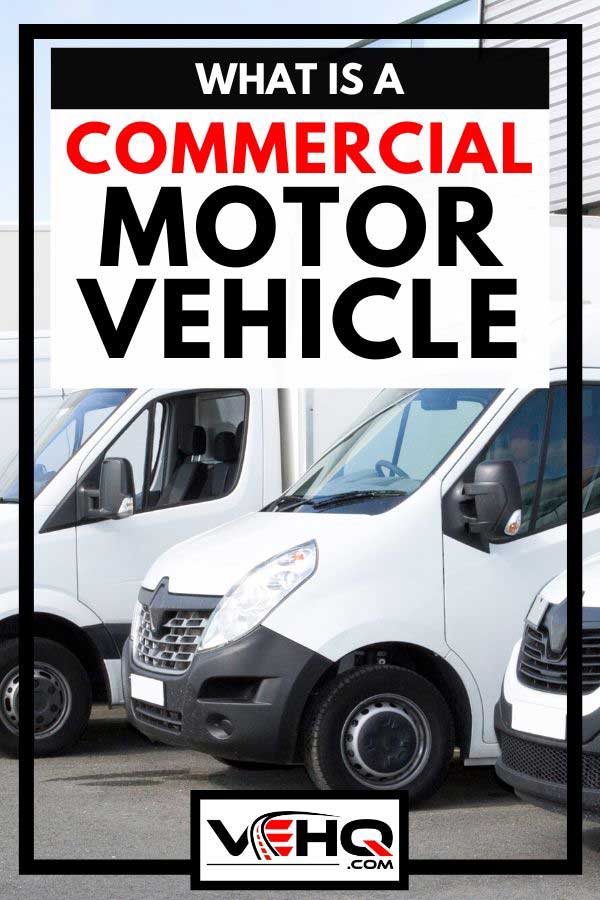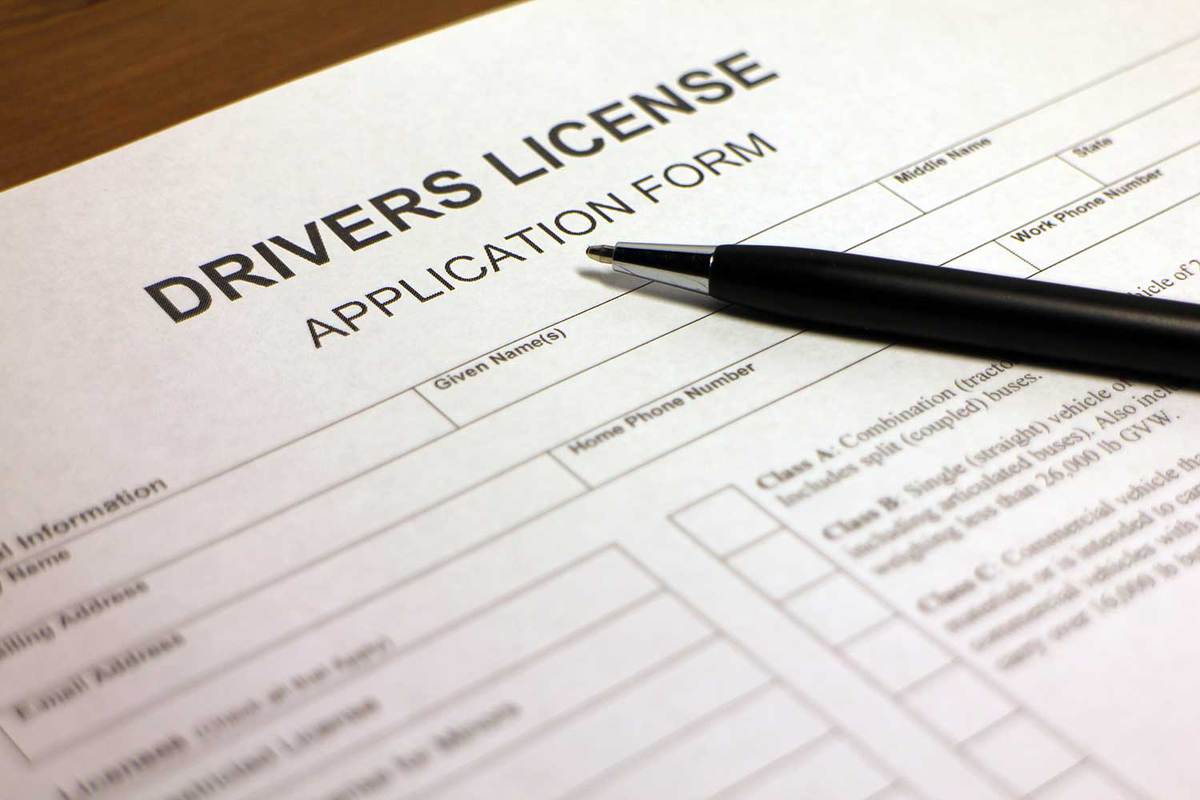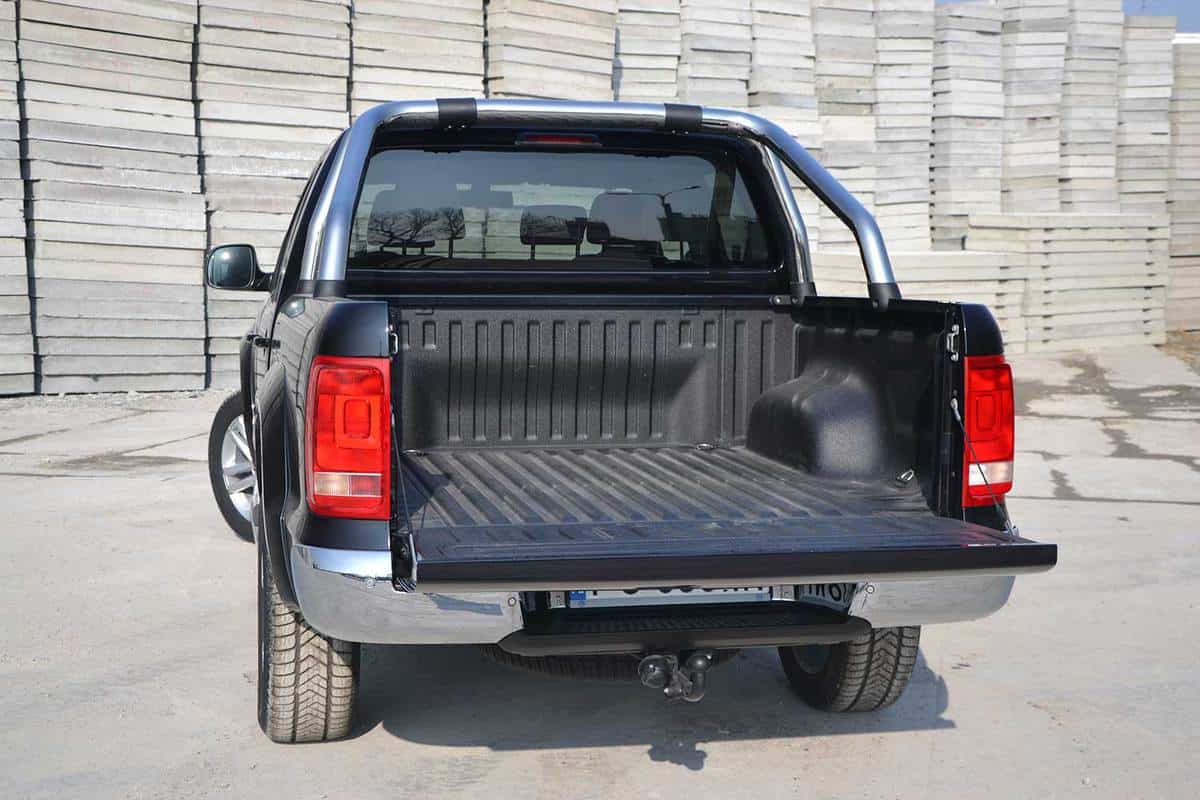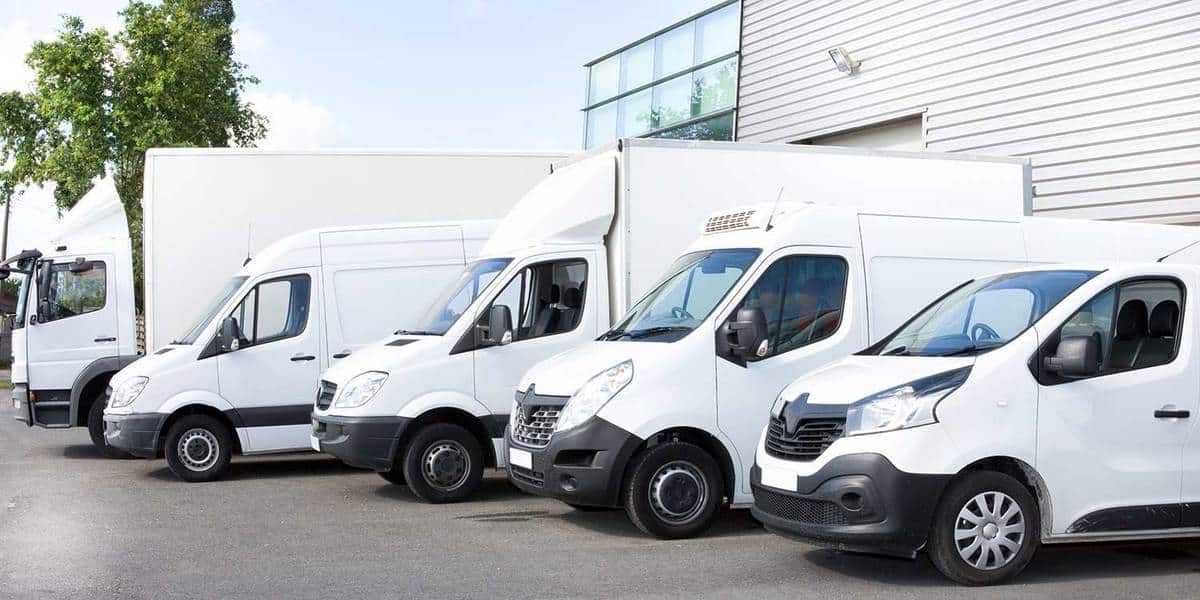 Each day on the road, you come across many different types of vehicles. Yes, that includes the cars and trucks of all make and model, but there are commercial motor vehicles in your midst as well. What are these vehicles?
Each day on the road, you come across many different types of vehicles. Yes, that includes the cars and trucks of all make and model, but there are commercial motor vehicles in your midst as well. What are these vehicles?
A commercial motor vehicle or CMV refers to a vehicle that carries passengers or cargo/goods to a destination on behalf of and for the earnings of a company. Examples of commercial vehicles are:
- Passenger buses
- Cargo trailers
- Delivery trucks
- Taxis
Are you curious to learn more about CMVs? If so, then this is the article for you. In it, we’ll talk about the regulations in place for these vehicles, licensure, plates, and whether your car can become a commercial vehicle. You won’t want to miss it!
[toc]
What Regulations Apply to Commercial Motor Vehicles?
The Federal Motor Carrier Safety Regulations or FMCSR defines a commercial motor vehicle or CMV two different ways per an article from Donlen, a company through Hertz.
For the first definition, under the FMSCR Sections 382.107 as well as 383.5, a CMV is any vehicle with a gross vehicle weight or GVW starting at 26,001 pounds that are used for carrying property or passengers.
The second definition under the FMSCR’s Section 390.5 declares that a CMV is a vehicle with a GVW of at least 10,001 pounds. It should do the above cargo or passenger transportation in an interstate commerce capacity.
The FMCSR asks that vehicles classified as CMVs meet the following regulations.
- The vehicle must be inspected now and again, or, as the FMSCR says, at “periodic” intervals.
- All drivers must comply for hours of service committed on the road, which refers to the amount of time driven.
- A record of maintenance must be created for the CMV and kept up to date.
- Permits may be necessary for oversized loads, super loads, hazardous materials documentation, and even some trips depending on where you go.
What Kind of License Do You Need to Drive a CMV?

Should you be interested in driving a vehicle in a CMV capacity, could you begin right away? You already have your DMV-issued driver’s license, after all, and it is current.
Once you upgrade to driving commercial vehicles, you need a commercial driver’s license to match. According to the Federal Motor Carrier Safety Administration or FMSCA, you earn this license by first obtaining a Commercial Driver’s Licensing Manual. To get one, find one of your state’s CMV field locations.
Next, you have to decide what kind of driving you’ll do and the type of commercial vehicle needed for it. Depending on if you want to drive a tractor-trailer, tank truck, school bus, or another vehicle as a CMV, it would be classed one of three ways.
With all that figured out, you next go after your Commercial Learners Permit or CLP. You must have someone with a CDL license in the car with you each time you drive with a CLP. Think of this as your learner’s permit for doing regular driving, as it’s very similar. The CLP is meant for you to earn real-world experience while practicing and sharpening your skills.
Before you can get your CLP, you first have to obtain a passing grade on a knowledge test. Then, you need to pass a DOT physical.
When you’re ready, you can test for the CDL license. This requires you to take a Skills Test, which you can only do if you’ve had your CLP for at least two weeks. The Skills Test is broken into three parts, the Road Test (where you get to drive), the Basic Controls Test, and the Vehicle Inspection Test. It helps if you have a clean driving record as well.
If you’re curious how much it might cost you to earn your CDL, check out this post on our blog.
Is a Company Vehicle a Commercial Vehicle?
Your company has grown to the point where you have several vehicles for work purposes. Do these company vehicles necessarily constitute commercial vehicles? Well, it depends on what you do with them.
Remember, at its most basic, a CDL is defined as a vehicle that transports goods or passengers for the profit of a company. If you use your company vehicles for promotional purposes only, then no, that wouldn’t count as a commercial vehicle. If you deliver goods, then your company car is a CDL.
Also, once your passenger count exceeds 15 people, the vehicle is classed as a CDL. If you’ve driven your company car without realizing it was a CDL before now, it’s within your best interest to get a CLP immediately, then work your way up to a CDL license.
Is a Pickup a Commercial Vehicle?
Let’s say you drive a pickup truck. After reading to this point, you’ve grown curious if this vehicle too, would be considered a CMV. After all, aren’t only heavy vehicles like big rigs and school buses CMVs?
Pickup trucks can fall under the CMV umbrella in some instances as well. If you remember the second definition of CMVs per the FMSCA rules, it says the vehicle could weigh more than 10,000 pounds. That total can include the combined weight of the pickup as well as the weight you’re towing, be that cargo or passengers.
There’s also the matter of how you’re using your pickup. If it’s to carry goods for your business, then once again, it’s a CMV. Like in the scenario above, you’d want to get a commercial driver’s license to continue operating your truck for these business purposes, especially for interstate travel.

Now, do keep in mind that not all pickups are necessarily CDLs. If you’re only using your pickup to get around from Point A to Point B and not for the sake of any business, then you can continue operating the vehicle with your standard-issue driver’s license.
What Is a Commercial Vehicle Inspection?
In the section about CMV regulations, we briefly mentioned the importance of inspections. Let’s talk more about how these apply to commercial vehicles.
A commercial vehicle inspection or CVI typically occurs at a weigh station by a state trooper. The trooper can also request the use of inspection stations for these purposes.
The CVI, sometimes also called a Commercial Vehicle Enforcement or CVE doesn’t necessarily mean you’re in trouble, even if a police officer issues it. Instead, this inspection is for the safety of yourself as well as all your fellow passengers.
During a CVI, the state trooper or other issuers of the inspection will look for the following problems with your CMV:
- Whether your insurance is current
- If your vehicle has mechanical fitness issues
- How secure your cargo is
- If your permits are up to date
- How many hours you’ve driven consecutively
- If your vehicle is considered overweight
- If the driver has a current CDL
- Whether your vehicle is leaking fuel anywhere
- If any frames are cracked
- If your brake linings are as thick as they should be and whether they’re cracked
- If the tires are too worn down
Should you fail any of the above inspection areas, the officer will recommend the next steps, although these often involve fixing the problem as soon as possible.
What Do Commercial Plates Mean?
You already know you need a specialized license for operating a CMV, so does that apply to plates as well? Indeed, commercial license plates indicate that your vehicle is being used for commercial purposes, including traveling with passengers or cargo and gear.
While it varies by state, this license plate will typically say “commercial” somewhere on it. It will also have a tag or sticker letting you know when the plate expires.
While you must first register your CMV to get a license plate for it, once you do, you’ll begin reaping a slew of perks.
For one, it’s possible to shave money off your insurance costs, sometimes as much as 10 percent, after you register as a CMV. You also gain access to parking spots unusable by most regular vehicles so you can drop off and pick up cargo more efficiently. Even better is that you can get the money you paid to register your CMV back on your tax return.
Can a Private Car Be Converted to a Commercial Vehicle?
If you’re convinced a CMV would be for the betterment of your company, then you may be interested in taking a private car or truck and making it into a commercial vehicle. Is this even possible?
Indeed, it is. There is an age limit on the vehicle, so if your current private car/truck is closer to a decade old, you might want to reconsider. You will need a CDL if you don’t already have one so you can now operate your commercial vehicle. You’d also have to upgrade its registration to reflect the change. Finally, you’d have to get fresh plates that display your commercial vehicle status.
This can be a time-consuming and even pricy venture, so make sure you have patience and keep your goals realistic. Also, should you ever change your mind, you can convert some commercial vehicles back to private ones, especially if yours had been a private vehicle prior.
The bottom line on commercial motor vehicles

A commercial motor vehicle or CMV is any vehicle used to carry people or goods to earn money for a business. While not every private vehicle can become a CMV, many pickup trucks can.
If you’re interested in converting your vehicle to a CMV, you need a commercial driver’s license and commercial plates. You must also re-register your vehicle and ensure you follow all CMV regulations. Your CMV will be inspected as well, so be ready for that. Best of luck!
